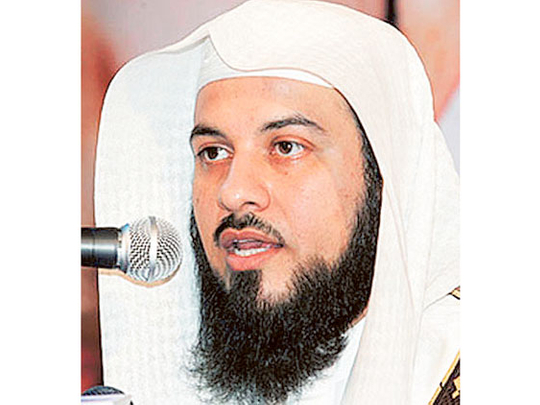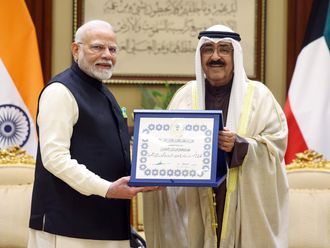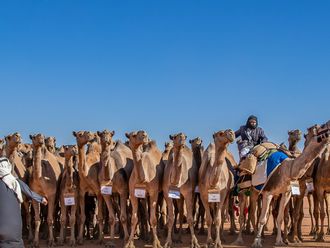
Manama: Saudi religious scholar Mohammad Al Arifi has been banned from entering Switzerland and the Schengen area.
The decision extends a six-month ban imposed by the Swiss authorities in December that prevented Al Arifi from attending the second annual conference of the Swiss Central Islamic Council.
The new ban will be in place for five years and will mean that the scholar cannot travel to any of the Schengen member countries or the Helvetic federation.
Al Arifi’s critics have often accused him of advocating violence against women, homophobia and anti-Semitism and the first ban on his visit to Switzerland was imposed after two local organisations levelled charges against him, prompting the authorities to call off his participation in the Fribourg conference.
He has been remarkably savvy in using social networks and microblogs to debate issues and spark debates online. With the number of his followers on Twitter exceeding five million, his thoughts and views are often in the news. However, this time, he chose not to mention in his online postings the ban imposed by Switzerland and sought to reassure his followers that he was faring well.
A hugely popular figure, mainly among young men and women, Al Arifi is no stranger to controversies, either. In April 2011, he was reported to have said that a daughter should not sit alone with her father because she might tempt him into lusting after her. However, he denied the statement and said that his words had been taken out of context. He explained that he was responding to a question by a woman who complained that her brother was harassing his daughter. Al Arifi warned daughters in such situations to avoid wearing revealing clothes to avoid problems.
“Only senseless people would oppose a father sitting with his daughter,” Al Arifi said. “The fatwa attributed to me is wrong and I never said that daughters should not remain alone with their fathers,” he said.
Travel bans have proliferated in Europe in recent years with the rise of conservative political regimes. Last year, the then French president Nicolas Sarkozy sought to ban Saudi scholars Ayed Bin Abdullah Al Qarni and Abdallah Basfar, Egyptian scholar Safwat Al Hijazi and former occupied Jerusalem mufti Akrama Sabri from entering France to attend a conference.
A statement by French officials said that “these people’s positions and statements calling for hatred and violence seriously damage republican principles and, in the current context, represent a serious threat to public order.”
Sarkozy in 2012 said that Yousuf Al Qaradawi, 86, an influential Qatar-based scholar was not welcome in France.
The Egypt-born scholar, who hosts a popular religious talk show on Al Jazeera satellite television, openly supported the uprisings in Tunisia, Egypt and Libya, and has called for concerted efforts to raise funds and weapons for the Syrian opposition.
Bans imposed on Muslim scholars have often sparked lively debates on relations between religious opinion leaders in the Muslim world and the West.
“We are for living together and in harmony in a common world that we share,” said Jasem Al Mutawa, an avowed Salafist in Bahrain. “But when we see that the West that boasts about freedom of speech and expression cannot accept that moderate scholars sit with the Muslim communities in Europe, then we fear that all the talk about togetherness and working together is not genuine,” he said.
Jaber Mohammad, an analyst in Manama who is supportive of the Muslim Brotherhood, said that religious harmony was not a vain expression.
“We appreciate there are people pressing for bringing all the different segments of the world together,” he said. “But if there are travel and visit bans, then there is a real issue that needs to be addressed. I am not here talking about radical elements, who must be resisted everywhere, but about people who are often so old that the only threat they pose is to their own health,” he said.
Jaber said that he might understand concerns in some countries where “despotism and oppression are the rule.”
“However, we are talking here about the West, particularly European countries that have always championed, often pompously, freedom of expression and opinion. It is a pity that they are resorting to a censorship of the people in the name of freedom,” he said.











